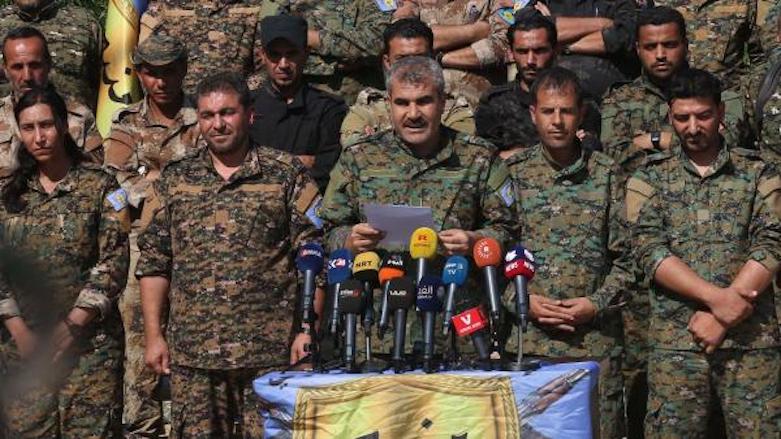Manbij Military Council challenges Erdogan’s claims, call for investigation

ERBIL (Kurdistan 24) – Shervan Darwish, the spokesperson of the Manbij Military Council (MMC), called on international organizations to investigate the security situation in Turkish-controlled areas following statements by Turkish President Recep Tayyip Erdogan on Manbij and Til Rifaat.
“Erdogan says that the place in Jarabulus and al-Bab is run as it should be, and Manbij and Tal Rifaat are not the best!!! I call [on] the international organizations to send a special committee to study the situation in these cities to show the truth,” he wrote on his official Twitter account.
“Developments in Syria, whether in Tal Rifaat or Manbij, are not going as desired. The only places [in Syria] that are going in the desired direction are Afrin, Jarabulus, and al-Bab,” Erdogan said on Wednesday, at a news conference in the capital Ankara, Hurriyet Daily News reported.
A report by the Office of the United Nations High Commissioner for Human Rights (OHCHR) published last month details large-scale rights abuses in areas under Turkish control, such as Azaz, Afrin, Jarabulus, and al-Bab.
Turkish-backed rebel forces and the Turkish army took a vast territory in northern Syria during the Operation Euphrates Shield (August 2016-March 2017) and Operation Olive Branch (January-March 2018) to prevent the Syrian Kurds from creating an autonomous region on Turkey’s border.
As a result of these operations and agreements with Russia and Syria, Turkey now controls a large contiguous area from Jarabulus to Idlib.
“Civilians now living in areas under the control of Turkish forces and affiliated armed groups continue to face hardships, which in some instances may amount to violations of international humanitarian law,” the UN report said.
“In areas such as Afrin, al-Bab, Azaz, and Jarabulus, the security situation remains volatile, with de facto authorities currently unable or failing to act to ensure public order and safety,” it added.
The situation is “exacerbated by fighting between various armed groups made worse by the arrival of additional fighters from armed groups from other areas of Syria, including Eastern Ghouta.”
Several reports by the Syrian Observatory for Human Rights (SOHR) confirm the general insecurity in these regions, reporting clashes and internal fighting between Turkish-backed rebels in Azaz, Bab, and Jarabulus.
On June 4, the United States and Turkey agreed on a roadmap for the Arab majority town of Manbij. Following the announcement, the Kurdish People’s Protection Units (YPG) announced on June 5 that they would withdraw their advisers from the area.
Turkish and US troops started independent patrols along the so-called green line separating Turkish-controlled areas of northern Syria from the town of Manbij, which is controlled by the MMC, affiliated to the US-backed Syrian Democratic Forces (SDF), spearheaded by the Kurdish YPG forces.
On July 16, the MMC announced that the YPG completely withdrew from Manbij.
In June, the Pentagon said the Turkish army would not enter Manbij, and the town would remain under control of the MMC.
Editing by Karzan Sulaivany
